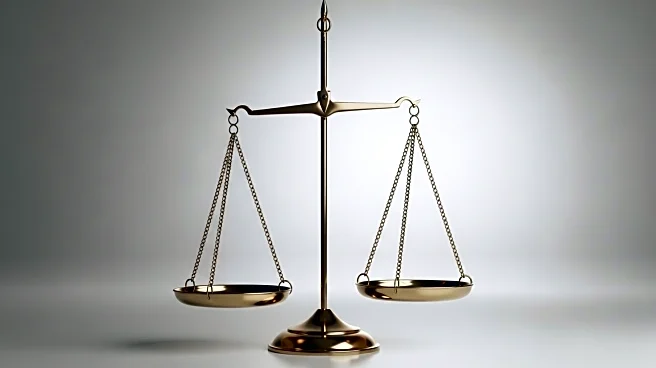What's Happening?
A federal appeals court has determined that President Trump lacked the legal authority to impose sweeping tariffs, yet has decided to leave them in place for the time being. The U.S. Court of Appeals for the Federal Circuit upheld a previous decision by a specialized federal trade court, which found that Trump was not legally permitted to declare national emergencies and impose import taxes on nearly every country. Despite the ruling, the tariffs remain as the administration plans to appeal to the Supreme Court. The tariffs, which have been a cornerstone of Trump's trade policy, were intended to protect the American economy by imposing taxes on imports from countries with trade deficits with the U.S. and those involved in drug trafficking and immigration issues.
Why It's Important?
The ruling has significant implications for U.S. trade policy and economic strategy. Trump's tariffs have been used to pressure foreign governments into trade negotiations and have contributed substantial revenue to the U.S. Treasury. However, the court's decision challenges the president's ability to unilaterally alter trade policy, potentially emboldening foreign governments to resist U.S. demands. If the tariffs are eventually struck down, it could lead to financial repercussions for the U.S. Treasury, which has collected billions in tariff revenue. The decision also raises questions about the balance of power between Congress and the presidency in setting trade policy.
What's Next?
The Trump administration plans to appeal the decision to the Supreme Court, seeking to maintain the tariffs as a tool for economic and trade negotiations. The outcome of this appeal could redefine the scope of presidential power in trade matters. Meanwhile, foreign governments may reassess their trade strategies with the U.S., potentially delaying or renegotiating existing agreements. The legal and economic communities will closely monitor the case, as its resolution could have lasting impacts on U.S. trade policy and international relations.
Beyond the Headlines
The case highlights the legal complexities surrounding the use of emergency powers for economic purposes. It underscores the ongoing debate over the extent of presidential authority in trade matters and the potential need for legislative oversight. The decision may prompt discussions on the ethical implications of using tariffs as a political tool, affecting global economic stability and diplomatic relations.









